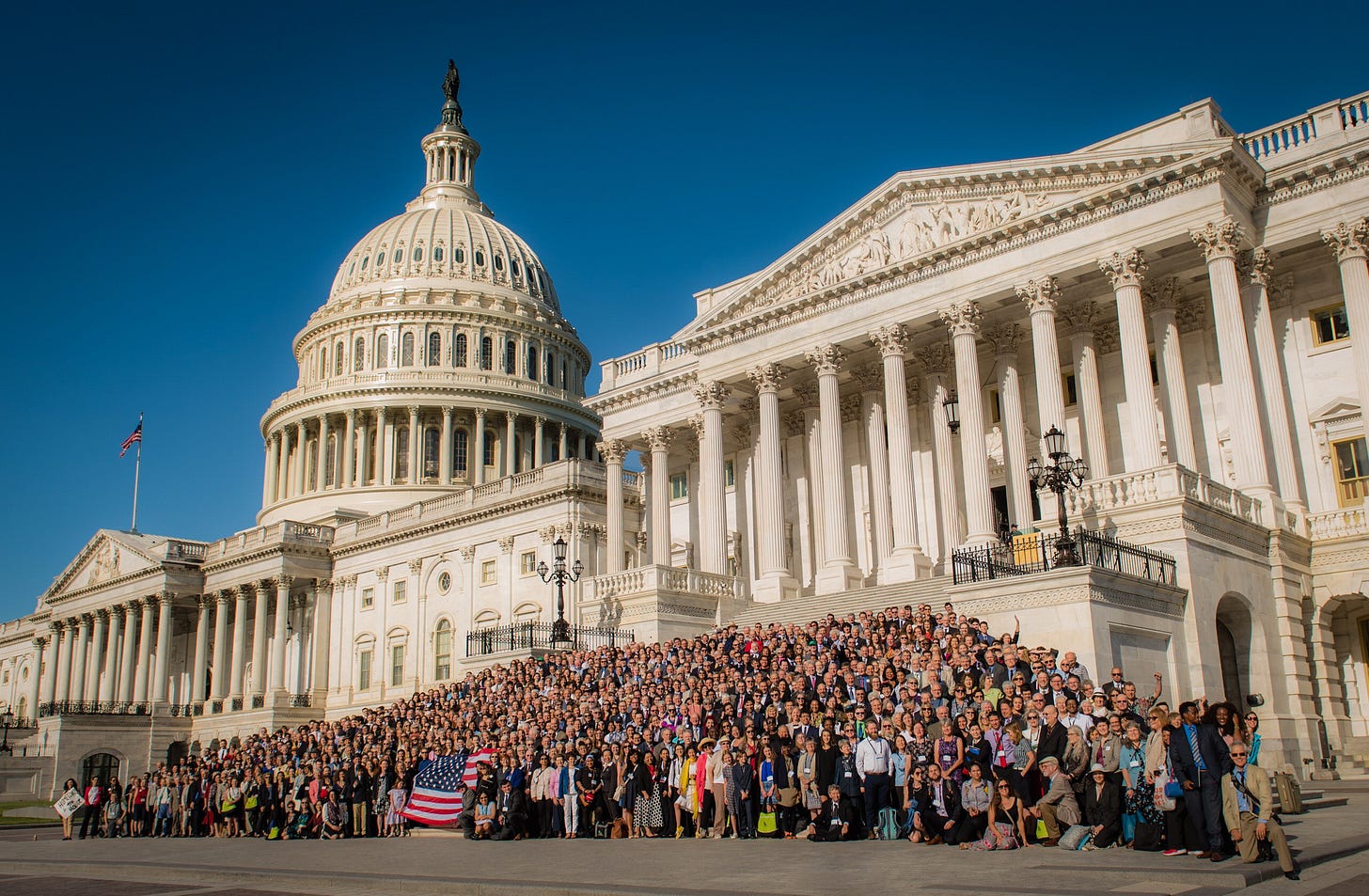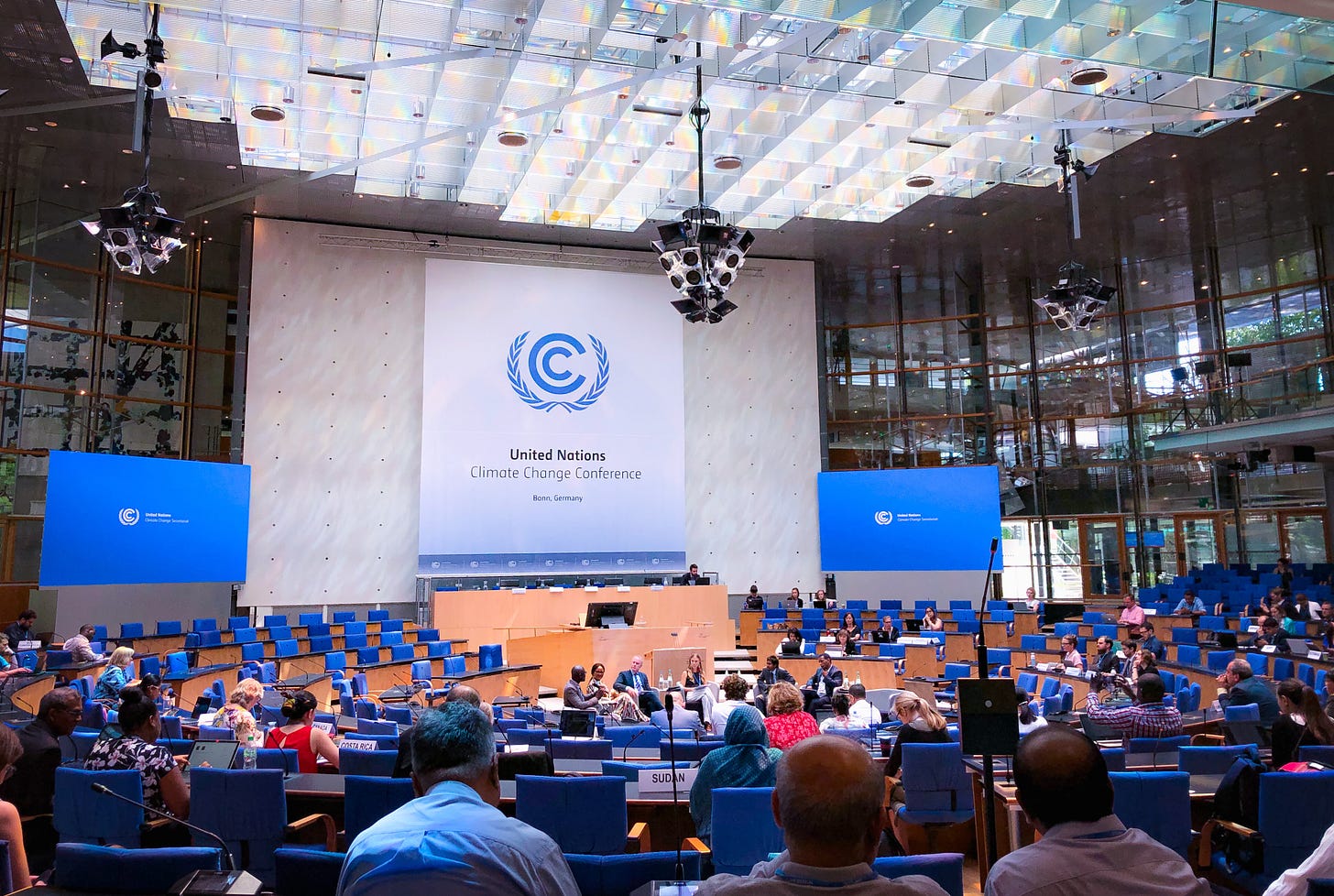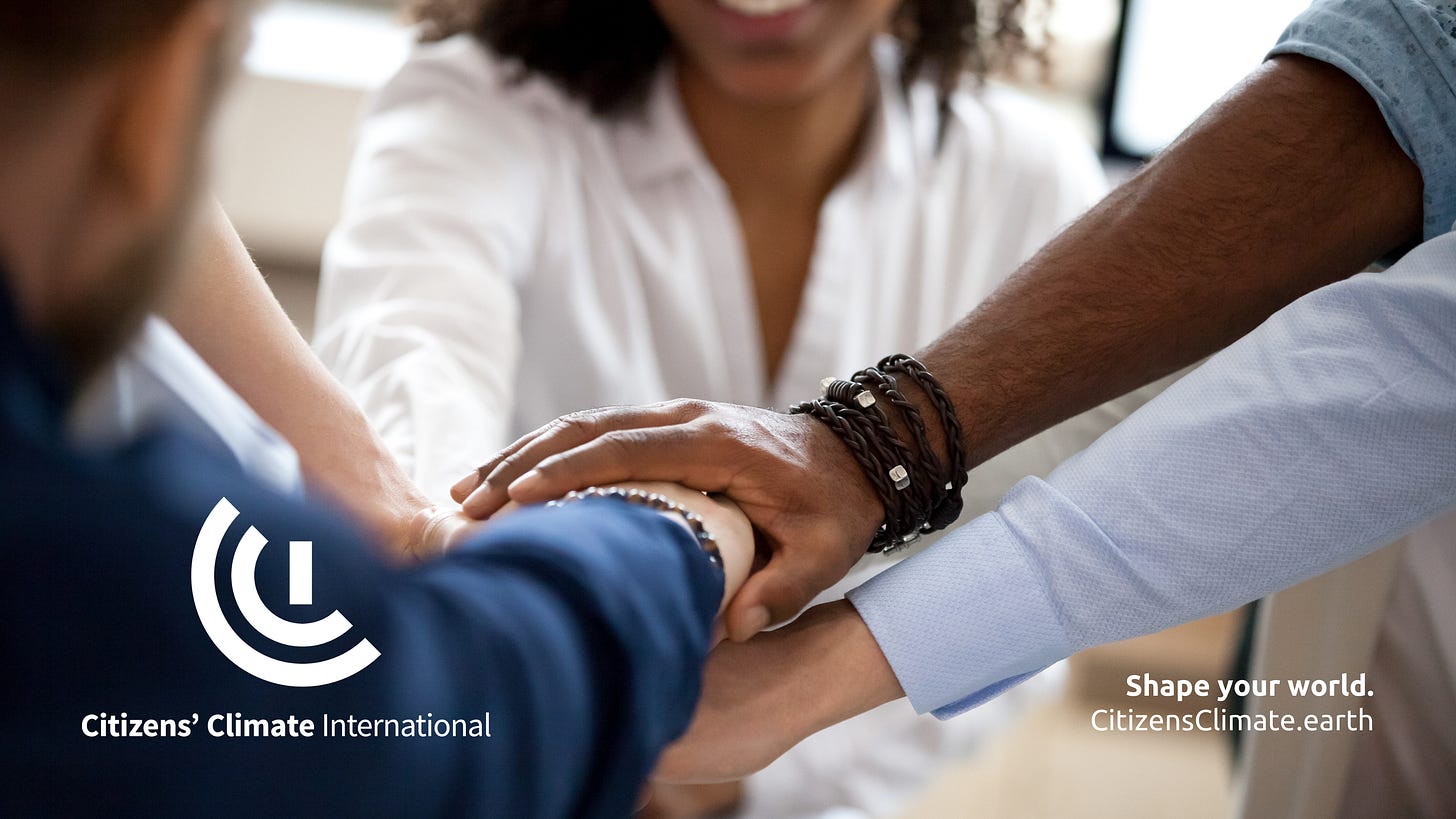Democracy is a climate solution
This is why those who profit from pollution are so determined to corrupt and control democratic processes. Democracy is a social contract, committing us to protect each other from unaccountable harm.
The Preamble of the United States Constitution reads:
We the People of the United States, in Order to form a more perfect Union, establish Justice, insure domestic Tranquility, provide for the common defence, promote the general Welfare, and secure the Blessings of Liberty to ourselves and our Posterity, do ordain and establish this Constitution for the United States of America.
To parse the scope and power of these words, we have to start from the direct statement of social contract, the commitment by “We the People” to “secure the Blessings of Liberty to ourselves and our Posterity”. This frames all that follows as a binding ethical commitment of reciprocal service and mutual support.
Liberty is not a flashing moment of blissful unaccountability; it is a transcendent project, in which each of us plays a role in making the others free. It encompasses our shared effort to achieve justice, tranquility, security, and everyday wellbeing. And, it extends to future generations. Liberty is not just personal freedom; it is freedom from the terror and tyranny of autocrats wielding unaccountable power.
This is why the First Amendment ends with a guarantee that no law will ever limit the right of the people “to petition the government for a redress of grievances.” In a democratic republic, the government is there to oppose unaccountable harm, not to protect those who profit from it.
As we watch the fires, floods, and havoc of human-caused climate destabilization engulf and disrupt our world, we face a test of this foundational principle of our social contract. We are ethically and constitutionally bound to support each other in guarding against this kind of unaccountable harm.
Our system is intended to protect the victims of climate emergency, not those who profit by causing it.
Democracy is not an abstraction; it is not an ‘ism’. It means “We the People”—every one of us, even the most downtrodden and unappreciated—decide together what kind of world we will make. No group must ever dehumanize or degrade another; our choices must add up to a reciprocal process of ongoing humanization and liberation.
Democracy means we are, as the Preamble says, mutually committed to union, justice, and a shared experience of durable tranquility, free from the cruelties of unaccountable power. This does not mean democracy is anti-government; it means a democratic government must protect the most vulnerable and prevent those who would abuse power—of whatever kind—from doing so.
If wealth brings power, it means democracy requires active, coordinated prevention of its abuse.
If pollution produces immense wealth, while generating widespread harm, borne by others, democracy requires that pollution be curtailed.
If pollution is allowed, our social contract requires that anyone benefitting from it pay everyone else for that privilege, so we can, as a society of free people deciding our fate together, properly plan for and pay for whatever costs that pollution will bring.
If pollution is allowed, and paid for, democracy also means there can be no “sacrifice zones”, no places where the people who live there are treated as if their health and wellbeing don’t matter.
Proponents of a laissez-faire approach (which means “let them do as they wish”) argue that such reciprocal civic duties are dissuasive, that investors will be less enthusiastic or creative if they are challenged in such a way. This is not only counter to all of the logic and observed history of enterprise (challenges generate creativity, and innovations generate enthusiasm, and new investment); it is contrary to the very core of what democracy is to argue that our duty to each other is inconvenient.
Honoring our duty to each other is what keeps us free.
The fight polluters wage to counter democracy is an assault on our collective and individual liberties. We are not free to counter the harm they cause, to regulate their dangerous actions, to challenge outright abuses in court, they argue… because what they do has useful value. For this reason, they demand to be immune from all scrutiny, never held liable for obvious cases of negligence or preventable harm.
From the standpoint of a democratic republic, this is nonsense. If their actions cause harm, everyone harmed by those actions has standing to challenge them in court. The legislative, executive, and judicial branches are all empowered to regulate and eliminate a harmful behavior that degrades the liberty and quality of life of others.
Our social contract commits us to protect each other and to secure the blessings of liberty; it also commits us to participate in the shaping of a destiny made from better choices, informed by the founding mission of the Republic. There are better choices available to us. We should not only seek and make use of the relevant information; we have a responsibility to make sure our collective decisions use that information to ensure we are empowered to make better choices together.
When North America is blanketed in wildfire smoke, setting records for dangerous air pollution, and floods ravage coastal and inland areas from New Orleans to Tennessee to New York and New England, we face a moment of historic importance.
30 years from now, people will ask: What did climate emergency call you to do? How did you help?
If you shouted “Freedom!” at a rally to protect polluters—whose money would never trickle down to you or anyone you know, and whose actions are putting the biosphere itself at risk—expect your grandchildren to be rightly unimpressed and bewildered. If, on the other hand, you got involved in local and national decision-making, helped to forge unlikely alliances, and shaped strategies to stop making it worse, if you defended the blessings of liberty by using democracy to oppose unaccountable harm, your grandchildren will be gratified to know you cared for them deeply enough, and had the decency and good sense, to try for better.

Democracy works. Yes, propagandists and extremists, corrupt interests, and compromised politicians, seek to abuse and corrupt it, and their actions are a real problem, but none of that is democracy. Democracy is the good, hard, inclusive, everyday work of opposing those abuses.
The Preamble acknowledges that American democracy did not have perfect beginnings, and maybe would never achieve perfection, but that it would be the work of the People to move closer to perfect alignment with the foundational commitment to good self governance. Our founding laws require us to not only safeguard each other’s rights, wellbeing, and liberty, but to secure them for future generations.
A world where food is unaffordable and scarce is not a world where rights, wellbeing, and liberty, are secure. A world defined by county-sized fires, region-wide flash floods, hurricanes with tornado-force winds, and fiscal instability, cannot honor rights, wellbeing, and liberty. A world where lighting a room and buying groceries degrades everyone’s future is not designed to secure the blessings of liberty.

Democracy is a climate solution. We need more of it, the best kind of it, with people of diverse views and experiences working together, everywhere around the world, to honor the foundational commitment to reciprocal service and mutual support.
To learn more about what you can do, to use democracy to secure a livable climate future, for your community and for Earth’s live-giving systems, go to CitizensClimate.earth
Citizens’ Climate International also supports civic engagement in intergovernmental negotiations through Action for Climate Empowerment:
Read CCI’s proposal for expanded climate civics in UN processes.
Read CCI’s Earth Day Citizens’ Forum report for more information.
Read about CCI’s first global Youth Conference on Carbon Pricing.
Follow CCI’s news and announcements for a series of ACE events in October, on grassroots capacity building for upgraded climate ambition at COP26.


